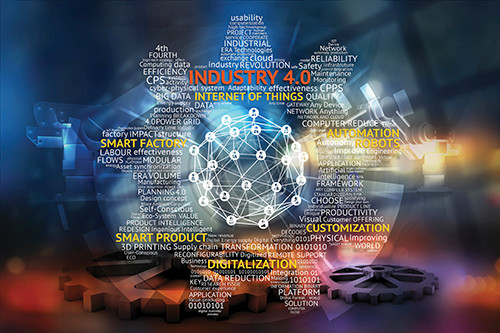Industry 4.0: Impacts on supply chains
Thời sự - Logistics - Ngày đăng : 16:14, 29/11/2016
(Vietnam Logistics Review) The concept of industry 4.0 or the 4th industrial revolution was first mentioned in the hi- tech strategy action plan approved by The Germany’s government in 2012. It is a term for a series of modern automated technology, data exchange and manufacturing.
Industry 4.0 basically is a detailed plan for digitalizing values from factories to customers. It combines activities of logistics, manufacturing, IT, technology and … then, digitalize business activities. Technology includes Internet of Things (IOT) and Internet of Services (IOS) and forming of intelligent factories and new business models.
It has been considered the latest wave of an industrial revolution. As previous ones, the 4th industrial revolution promises to bring great values. Modern technology help create new products and services with more reasonable costs. In the future, under its impacts, the field of supply will experience large changes with long-term benefits on efficiency and capacity. Costs on transport and communication decrease, systems of logistics and global supply chains become more transparent and effective, which result in low business costs. Those factors will bring new markets and push up global economic growth.
However, Industry 4.0 required enterprises to carry out many great changes to their business functions including activities in supply chains, despite the fact that there are no immediate impacts. Simon Jacobson (Gartner) shows 4 impacts by Industry 4.0 to supply chains:
(1) Intelligent factory: flexible and automated manufacture progress integrated with customers and partners (based on the basis of network approach and mobile data) change product life circles- which influences the setting of current factories, ways of product designs, marketing strategies and delivery systems.
(2)Internet of Services: Management of services via IT and providing services by Internet will create new business models, new delivery channels, which replaces current supply chains.
(3) Big data: Big data system and prediction analysis are used in the progress of manufacturing and business, which put organizations under pressure of how to use the data effectively.
(4) High-quality human resource: increase of intelligent factories in the future will make abilities not capital resources become core values of production. It increases the needs for high- quality labors, which requires managers of supply chains to improve their skills and abilities.

To deal with these changes, managers of supply chains should Manage providers: Changes from markets and fiercer competitions requires more connections and tighter managements of providers in the progress of product delivery.
Carry out transparent supply chains, which will increase capacity and reduce risks.
Plan the needs: Consumers’ needs change as the transparency of supply chains increases, which requires enterprises to plan the needs to ensure efficiency of progress of production, sales and delivery.
Design delivery network - to deal effectively with new sales models and new channels of delivery, delivery network should be re-organized.
